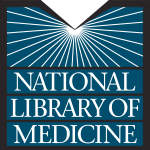- 行业: Library & information science
- Number of terms: 152252
- Number of blossaries: 0
- Company Profile:
The National Library of Medicine (NLM), on the campus of the National Institutes of Health in Bethesda, Maryland, is the world's largest medical library. The Library collects materials and provides information and research services in all areas of biomedicine and health care.
1) A nonapeptide messenger that is enzymatically produced from kallidin in the blood where it is a potent but short-lived agent of arteriolar dilation and increased capillary permeability. Bradykinin is also released from mast cells during asthma attacks, from gut walls as a gastrointestinal vasodilator, from damaged tissues as a pain signal, and may be a neurotransmitter.
2) A nonapeptide kinin and neuropeptide involved in blood pressure regulation and pain receptor stimulation.
Industry:Medical
The production of offspring by selective mating or hybridization, genetic in animals or plants.
Industry:Medical
La particella più piccola di un elemento che possa esistere sia da sola che in una combinazione.
Industry:Medical
1) Process of the interaction of blood coagulation factors that results in an insoluble fibrin clot.
2) The process of clot formation.
Industry:Medical
An inability to coordinate voluntary muscular movements that is symptomatic of some nervous disorders.
Industry:Medical
Il processo col quale le cellule si moltiplicano comportando sia la divisione nucleare che quella citoplasmatica.
Industry:Medical
Non cancerogeno; non invade i tessuti circostanti o si propaga ad altre parti del corpo.
Industry:Medical
1) Substances that increase the risk of neoplasms in humans or animals. Both genotoxic chemicals, which affect DNA directly, and nongenotoxic chemicals, which induce neoplasms by other mechanism, are included.
2) Any chemical that can increase the risk of neoplasms in humans or animals.
Definition from: Unified Medical Language System (NCI Thesaurus) at the National Library of Medicine Any substance that causes cancer.
3) A carcinogen is an agent with the capacity to cause cancer in humans. Carcinogens may be natural, such as aflatoxin, which is produced by a fungus and sometimes found on stored grains, or manmade, such as asbestos or tobacco smoke. Carcinogens work by interacting with a cell's DNA and inducing genetic mutations.
Industry:Medical
1) Visible accumulations of fluid within or beneath the epidermis.
2) A fluid-filled elevation of the epidermis.
3) An agent that causes blistering.
Industry:Medical
